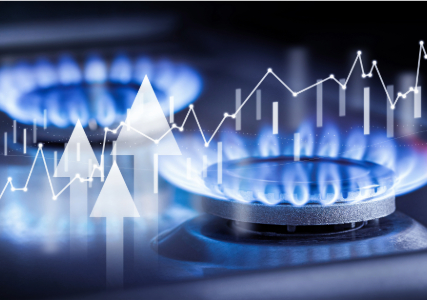This past November we delivered the inaugural Critical Climate Change Week, hosted by Ontario Tech University, in collaboration with Common Earth. The theme this year: Methane Awareness. It is surprising how little people generally know about this greenhouse gas, despite recent evidence suggesting it is driving more of the climate crisis than previously thought. (It is also surprising how few people know that the natural gas they use in their home is mostly methane.) Amidst repeated efforts to promote awareness related to the existential threat of climate change, methane gets underplayed. This needs to change.
As COP29 concludes in Azerbaijan, a petrostate complete with a petro-dictator, recent satellite surveillance revealed methane emissions from gas flaring actually increased nearly 11% from 2018, the last time the country formally reported. Another study based on satellite observations estimated that while global methane emissions have been underestimated by nearly a third, Canadian emissions may have been under-reported by as much as a whopping 50%. Meanwhile, as Gavin Schmidt, Director of the NASA Goddard Institute for Space Studies, cautioned us during an online expert panel, even this technology can’t begin to capture all the methane being released by agriculture, wetlands, melting tundra, landfills, and other sources.
Why is this so relevant? Most experts agree that methane is responsible for around thirty percent of the rise in global temperatures since the industrial revolution of the 1800s. As it continues to rise, its impact on short-term warming (25-80x greater than carbon dioxide, depending on the time scale) is terrifying. And it’s on us: our rising use of natural gas is giving methane ample escape opportunities. Though wetlands and frozen tundra can be considered natural sources of methane, human activity is drastically affecting them as well, as Professor Tonya DelSontro from the University of Waterloo reminded our panel.
The Global Methane Initiative, now in its twentieth year, is supposed to help deal with this acute information challenge. The United Nations Environmental Program estimates that limiting methane emissions by 45 percent by 2030 will avoid nearly 0.3 degrees of global warming and save 26 million tonnes of crop losses. Yet daily emissions (especially the dominance of agricultural feedlot meat production) combined with “super-emitter events” (largely, industrial accidents) are pushing the dial in the wrong direction.
Aiming at rotting food in landfills, COP29 released a new Reducing Methane from Organic Waste Declaration this week. This is not unwarranted, but it isn’t enough, either.
The prospects for fast action on methane are dimming as the new occupants of the White House arrive. Canada has a methane plan, but it’s essentially limited to the heavily contested energy policy realm and landfill regulation. We need to move on methane on a global level, reducing subsidies for harmful agricultural and energy extraction projects.
Above all, perhaps, we need accurate data on emissions: verifiable and trustworthy, regardless of embarrassment to governments, agribusiness, oil companies, and others within the public eye. The European Union is leading the way on transparency, and North America should follow.
There is however, one immediate thing that any concerned person can do. According to the Global Methane Initiative over 30 percent of methane emissions come from ruminants – mostly cattle. So, anything we can do to cut back on our beef consumption and our cheese consumption immediately reduces this source of emissions, on top of any health and biodiversity benefits this provides. We cannot leave this up to governments, petro-states included. We can all help.
Co-authors Peter Stoett and David Patterson
_____
Peter Stoett is Dean of the Faculty of Social Science and Humanities at Ontario Tech University, and recently co-chaired an assessment by the Intergovernmental Science-Policy Platform on Biodiversity and Ecosystem Services (IPBES).
David Patterson was the founder and 31-year CEO of Northwater Capital before he founded Common Earth, which is contributing to the Post-Carbon Caring Society and the Gift Economy through its free educational and community programs.



